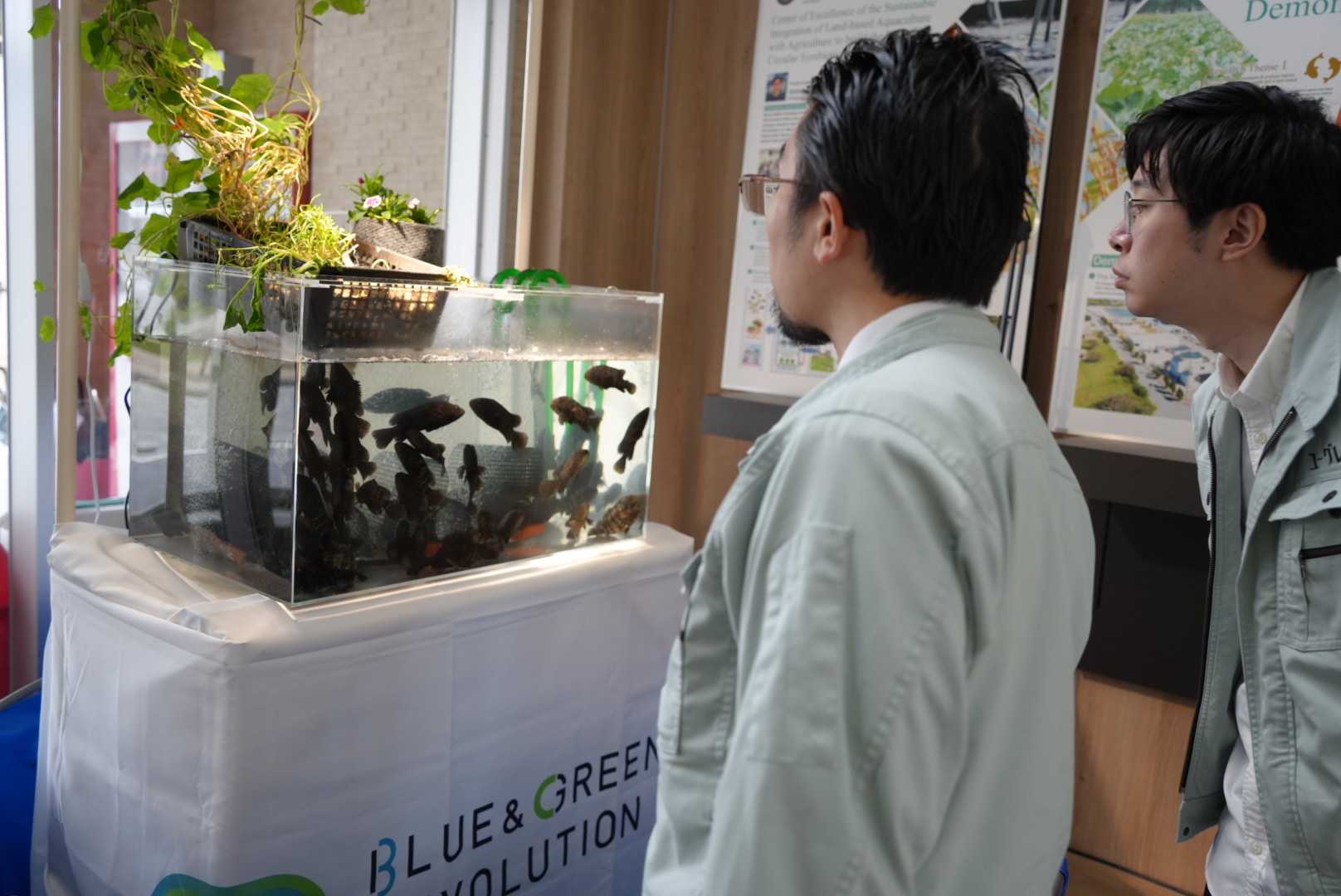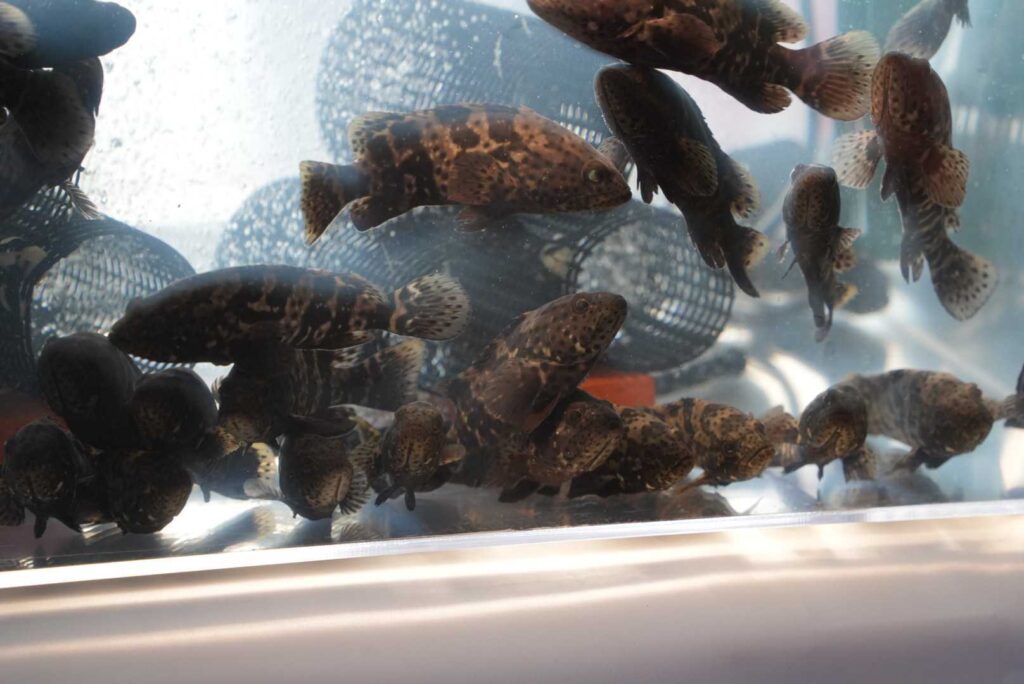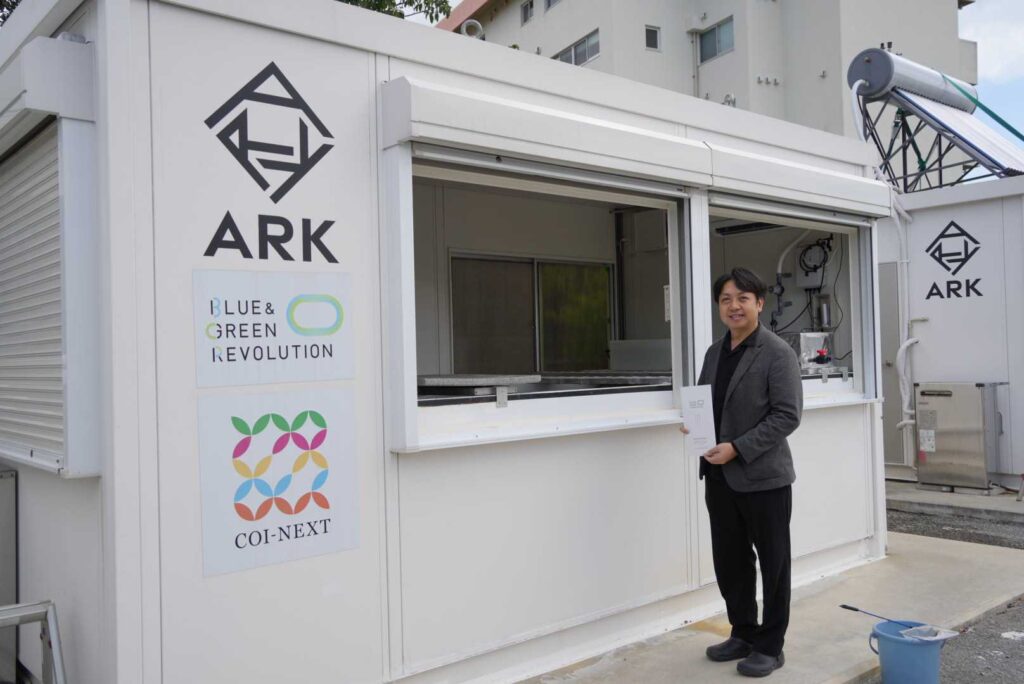
Report on the Visit to the University of the Ryukyus and COINext Aquaponics Project
Date: March 21, 2025Participants: Members of Euglena Co., Ltd.Location: University of the Ryukyus, Okinawa, Japan
Overview
On the morning of March 21, 2025, members of Euglena Co., Ltd. visited the facilities of the University of the Ryukyus to explore the ongoing research and technological advancements within the COINext aquaponics project. This initiative focuses on sustainable, land-based recirculating aquaculture systems, particularly in the cultivation of the marine fish Yellowtail grouper (commonly known as Yaithata grouper).
Technical Insights on the Aquaponics System
Aquaponics, a hybrid approach integrating aquaculture and hydroponics, presents unique challenges when applied to marine fish species. Salinity regulation, nutrient balance, and microbial ecosystem stability are critical factors that must be carefully managed to ensure system sustainability. During the visit, researchers at the University of the Ryukyus provided insights into how their technological developments have successfully addressed these challenges. Notably, their work focuses on optimizing water treatment methodologies, maintaining appropriate ionic compositions, and developing innovative biological filtration techniques to sustain a stable environment for marine fish cultivation.

Discussion on the Role of Microalgae
As a company specializing in microalgae-based solutions, Euglena Co., Ltd. was particularly interested in the potential applications of microalgae within this aquaponics system. The discussions revolved around two key aspects:
Water Purification: The potential of microalgae to improve water quality through biofiltration was explored. Certain microalgal species have demonstrated the ability to absorb excess nutrients, mitigate nitrogenous waste accumulation, and enhance microbial balance, thereby contributing to water quality maintenance in closed-loop systems.
High-Value Feed Development: Microalgae-based feed additives were discussed as a means to enhance the nutritional profile of fish diets. The high protein content, essential fatty acids, and bioactive compounds present in microalgae could contribute to improved fish health, growth rates, and overall product quality. This aligns with Euglena Co., Ltd.'s broader interest in leveraging microalgae for sustainable aquaculture practices.
Future Possibilities
Given the shared vision for sustainable aquaculture, the discussion opened avenues for potential collaboration between Euglena Co., Ltd. and the University of the Ryukyus. Such a multidisciplinary approach could further enhance the efficiency and sustainability of land-based aquaculture operations.
Conclusion
The visit provided valuable insights into the advancements achieved by the COINext aquaponics project in overcoming key challenges associated with marine aquaponics. Through technological innovations and interdisciplinary collaboration, the University of the Ryukyus has made significant progress in developing a robust system for sustainable fish farming. Euglena Co., Ltd. looks forward to further exploring the applications of microalgae in this domain and identifying synergies that can contribute to the future of environmentally friendly aquaculture.

